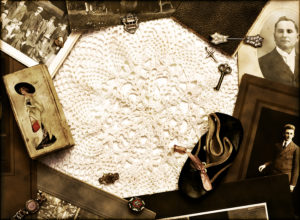Dividing Personal Items After Death

Sometimes, deciding how to divide a family member’s personal items after death can lead to more conflict and bad feelings than dividing up cash and other property. Many executors wonder how they can do this without causing rifts in the family.
Minneapolis Tribune’s article entitled “A clever way to divvy up items after a parent’s death” describes an unusual plan one family had to divide their mother’s personal property after her death.
According to the article, after their mother’s death at age 93, the co-executors, a brother and a sister, created an inventory of 724 items in her estate that had monetary or sentimental value. These included things like furniture, artwork, oriental rugs, cutlery, china, a piano and a car. They didn’t include their mother’s jewelry, books or linens, or her silver, gold and collectible coins. The four siblings (including the co-executors) all agreed to sell the coins and to deal with the many books, linens, jewelry, and other items more informally.
The family decided not to follow the usual process of taking turns to choose items they wanted. With so many items, that could take a while. Instead, the co-executors gave each sibling an inventory of their mother’s personal property, with the request that each sibling indicate on the inventory the items he or she wanted. This resulted in the 724 items of personal property being divided into three groups: (a) items in which no one had an interest; (b) items in which only one person had an interest; and (c) those desired by two or more siblings. The items in which no one had an interest were sold or given away. The items wanted by only one person went to that person.
The co-executors then distributed to the siblings a list of the items in which more than one of them had expressed an interest. Each sibling was “given” 500 virtual poker chips that he or she could use to bid for the contested items. However, prior to the bidding deadline, the siblings could talk with one another about their intentions and whether they could come to an agreement regarding specific items. Several of the siblings had bid for items in a general category, such as family pictures, bookcases and oriental rugs. They were able to agree among themselves who would receive which items from those general categories, thus preserving their virtual poker chips for what they really wanted.
After the final bids were in, the co-executors announced who won each item, but, to avoid possible conflict or disagreement on values, they did not reveal how much was bid for each item.
Finally, when all the allocations were determined, the co-executors calculated the value of all the items of personal property received by the siblings and readjusted the estate’s cash distributions to ensure that everyone came out in the same place financially. The most valuable items were a 1919 Steinway drawing room grand piano valued at $25,000; a 2005 Toyota Camry valued at $4,500; and some oriental rugs with a total value of $13,975. Those who got the more valuable items had to pay their siblings something for them, with a total of $17,500 trading hands.
Though it was time-consuming, the process avoided the tensions that sometimes result when personal property is distributed. The siblings involved believed their system was fair and even brought them closer together.
One thing to remember is that you don’t have to leave it to your executor to decide how to divide your personal property. You can leave your executor written instructions on how you wish certain items of sentimental value to be distributed. See https://galligan-law.com/how-a-letter-to-your-executor-or-trustee-conveys-your-wishes/
Reference: Minneapolis Tribune (Feb. 25, 2020) “A clever way to divvy up items after a parent’s death”

